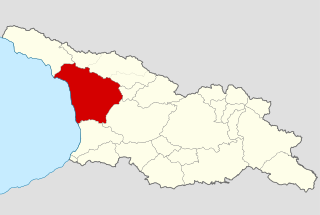Related Research Articles
Boyer is a French surname. In rarer cases, it can be a corruption or deliberate alteration of other names.
DeSutter is a surname derived from the Latin word sutor (shoemaker) and is widely used in Flanders. One could translate DeSutter as 'The Shoemaker'. The first record of the name is from the 13th century in Flanders. DeSutters originated in the northernwestern parts of Belgium in the Ghent area near the English Channel, as well as in Northwestern France. Variants include De Sutter, DeSoto, DeZuter, DeZutter and De Zutter.
Faux may refer to:
A nobiliary particle is used in a surname or family name in many Western cultures to signal the nobility of a family. The particle used varies depending on the country, language and period of time. In some languages, it is the same as a regular prepositional particle that was used in the creation of many surnames. In some countries, it became customary to distinguish the nobiliary particle from the regular one by a different spelling, although in other countries these conventions did not arise, occasionally resulting in ambiguity. The nobiliary particle can often be omitted in everyday speech or certain contexts.
Fay is an Irish surname that also arose independently in France. There are different theories about the origin and meaning of the surname.
Trump is a surname of English and German origin:
Cabrol is a French surname of Occitan origin. It is believed to be derived from the Latin word capreolus, meaning deer.
A Fau de Verzy is either a Dwarf Beech, a dwarf oak tree, or a dwarf chestnut tree. These grow in the forest of Verzy, 25 km south of Reims in France. In this forest are less than a thousand dwarf beeches, some dozen dwarf oaks and some dwarf chestnuts, but this article speaks in the main about dwarf beeches.

Melua is a family name originating in Georgia, specifically the Mingrelia region around the city of Zugdidi ; it belongs to Orthodox Christian culture.
Melia is a family name that may originate in the Caucasus state of Georgia, in Italy, or in Ireland. Melia Bergamin. The Georgian name is believed to be derived from the word melia, meaning "fox". Names derived from Melia are Meliava, Meliva, Melua, Meluava or Meladze. The Italian history may date back to early Rome. The Irish origins may be via alterations to the name O'Maille or O'Malley.
Durel is a French last name, mainly found originally in Normandy and derived from the French adjective dur + suffix -el. French variant forms include Dureau, Duret, Durelle and Durette. The Durel form was anglicized in Durell, Durrell. The English spelling -ell renders the French pronunciation of -el
Caffier is a French surname which, as a result of the asylum granted by Lutheran states in Germany to Huguenot refugees in the 17th and 18th century, is also to be found as a rare family name in Germany. Notable people with this name include:
Pérès is a French surname derived from Gascon language
Dupont, variously styled as DuPont, duPont, Du Pont, or du Pont is a French surname meaning "of the bridge", historically indicating that the holder of the surname resided near a bridge. As of 2008, the name was the fourth most popular surname in Belgium, and as of 2018, it was the 26th most popular in France.
Biron is a toponymic surname that is derived from either one of several places in France, or, as a variant spelling of Byron, from Byram, North Yorkshire. Notable people with the surname include:
In the Democratic Republic of the Congo, it is common for individuals to possess three separate names: a first name (prénom) and surname (nom) as well as a post-surname (postnom). Each form may comprise one or more elements. For example:
Faulx is a commune located in the Meurthe-et-Moselle department in north-eastern France.
Faux or Faulx is a surname, ultimately from Latin fagus ("beech"). The English surname is of Flemish origin.
De Fauw or Defauw is a Belgian surname.
Dufaux is a surname. It is most popular in Belgium, northeastern and southern France, and Switzerland.
References
- ↑ "Noms commençant par D". www.jeantosti.com. Retrieved October 15, 2021.
- 1 2 3 Germain, Jean; Herbillon, Jules (2007). Dictionnaire des noms de famille en Wallonie et à Bruxelles. Bruselles, Belgium: Racine. pp. 330–421. ISBN 9782873865061.
- ↑ Behoudvanoud. "Verklaring van achternamen D". www.stichtingbehoudvanoud.nl. Retrieved October 21, 2021.